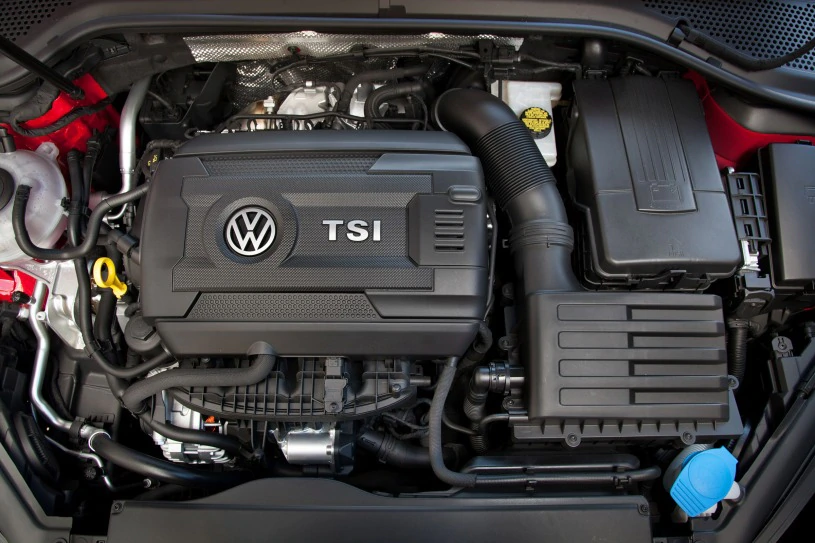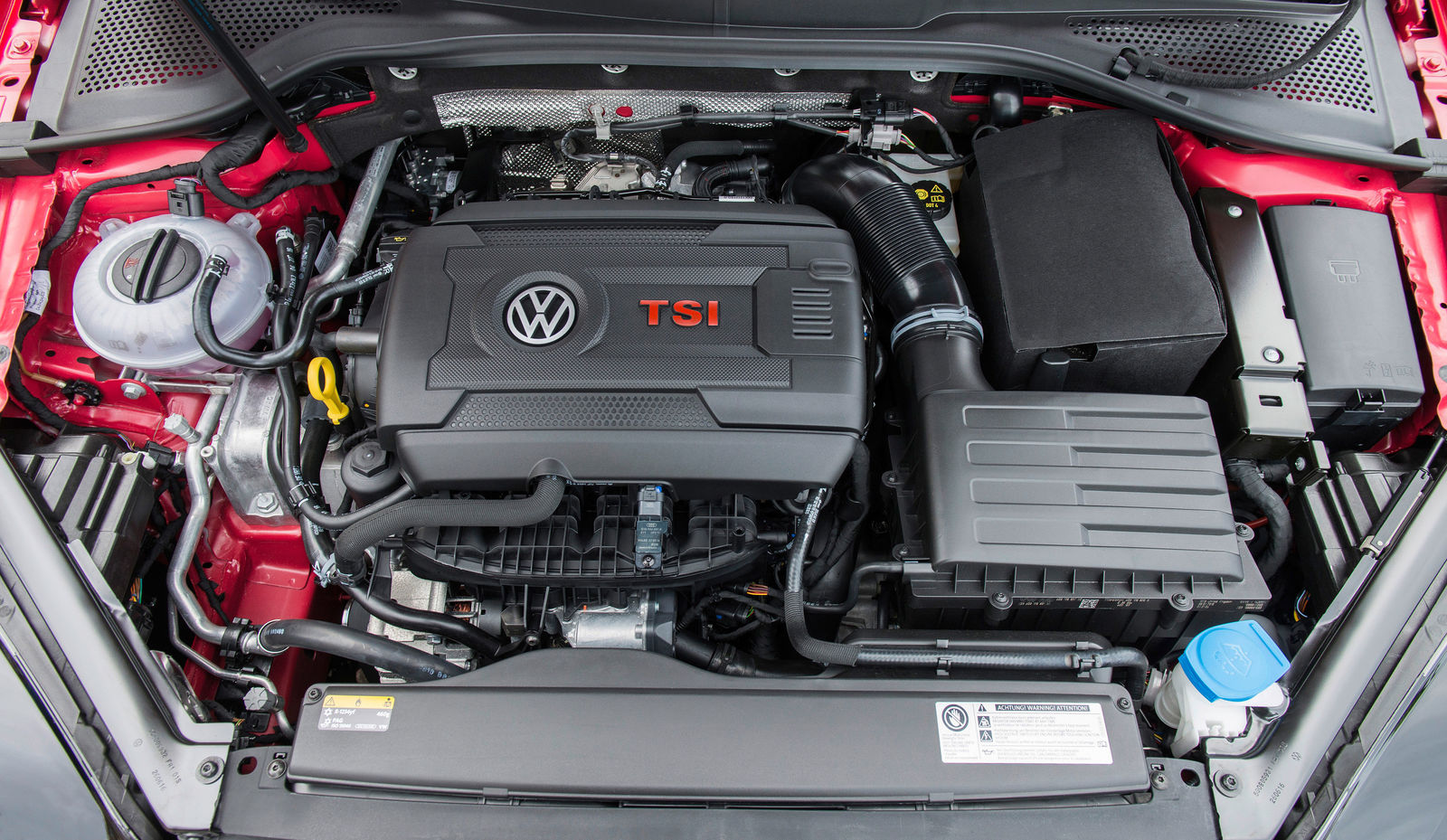A Deep Dive into the Golf 7 GTI Engine: Performance, Efficiency, and More
A Deep Dive into the Golf 7 GTI Engine: Performance, Efficiency, and More
Blog Article
Your Guide to the Golf 7 GTI Engine: Reliability and Upgrades
The Golf 7 GTI, furnished with its 2.0-liter turbocharged inline-four engine, represents a balance of efficiency and integrity that charms to enthusiasts and everyday motorists alike. Checking out various efficiency upgrades can dramatically improve both power and efficiency.
Overview of the Golf 7 GTI Engine
The heart of the Golf 7 GTI is its 2.0-liter TSI engine, a turbocharged four-cylinder that supplies an outstanding blend of power and performance. This engine creates a robust 220 horse power and 258 lb-ft of torque, allowing the lorry to speed up from 0 to 60 mph in simply 5.6 seconds, showcasing its flashy character. The turbocharged design not just enhances efficiency but additionally enhances gas effectiveness, making it a practical selection for daily driving.
Integrating advanced modern technology, the engine features straight fuel shot, which improves burning efficiency and minimizes emissions. Furthermore, the Golf 7 GTI is equipped with either a six-speed handbook or a six-speed DSG dual-clutch automated transmission, offering vehicle drivers with the versatility to pick their chosen driving design. The vehicle's front-wheel-drive design, incorporated with a well-tuned suspension, guarantees active handling and a responsive driving experience.
Engine Dependability Variables
Reliability is a vital facet of any type of performance-oriented automobile, and the Golf 7 GTI's engine is no exemption. Several aspects add to the overall reliability of this extremely pertained to powerplant, which is important for both everyday driving and perky efficiency.
First Of All, the Golf 7 GTI is outfitted with a durable 2.0-liter turbocharged inline-four engine, recognized for its efficient design and solid engineering. This engine includes a forged steel crankshaft and aluminum engine block, which provide superior strength and resilience while decreasing weight.
Secondly, regular maintenance plays a vital role in enhancing engine integrity. Abiding by the supplier's preferred solution periods, using premium lubes, and replacing important components such as trigger filters and plugs can dramatically prolong engine life.
Additionally, the quality of fuel made use of can likewise affect reliability. Costs gas is suggested to ensure optimum efficiency and reduce the risk of knocking or ignition.
Finally, the car's digital administration system constantly monitors engine criteria, enabling real-time changes to enhance performance and performance while securing against possible issues. Jointly, these aspects underscore the Golf 7 GTI engine's online reputation for dependability among enthusiasts and daily vehicle drivers alike.
Usual Problems and Solutions
The Golf 7 GTI, while commemorated for its performance, is not without its obstacles. Among the most frequently reported concerns are engine oil intake and turbocharger failings, which can considerably impact automobile integrity. Understanding these typical troubles and their options is necessary for preserving optimal engine performance.

Engine Oil Usage
While lots of fanatics appreciate the performance of the Golf 7 GTI, engine oil intake can emerge as a significant concern. Owners might see that their cars call for even more regular oil top-ups than anticipated, usually credited to different aspects fundamental in the engine's layout and procedure.
One usual issue is the engine's direct fuel shot system, which can lead to enhanced oil intake as a result of the combustion process. Additionally, making use of high-performance driving behaviors can aggravate oil burn-off, particularly under hostile throttle problems. Motorists might additionally experience oil leaks from seals and gaskets, which can contribute to decreased oil degrees.
To attend to oil intake, routine maintenance is essential. Regular oil adjustments using high-quality synthetic oil can assist preserve optimal engine performance and long life. Monitoring oil degrees and performing prompt checks can protect against prospective concerns prior to they escalate. If excessive intake lingers, it may be a good idea to speak with a professional technician to assess the engine for prospective inner troubles, such as used piston rings or shutoff seals. Embracing these techniques can dramatically mitigate worries pertaining to oil consumption in the Golf 7 GTI, making certain an extra pleasurable and trustworthy driving experience.
Turbocharger Failures
Turbocharger failings can considerably influence the performance of the Golf 7 GTI, bring about lessened power and performance. Common concerns associated with the turbocharger consist of oil leakages, wastegate failing, and too much shaft play. Oil leaks frequently stem from worn seals or damaged gaskets, which can cause oil contamination and subsequent engine damages. On a regular basis examining these components can assist determine and minimize such problems early.
Another prevalent problem is wastegate failure, which can lead to overboost or underboost conditions. If left uncontrolled, this not just affects the car's efficiency but can additionally lead to major engine damages. Updating to a much more robust wastegate can boost reliability and performance.
Too much shaft play suggests wear in the turbocharger's bearings, which can result in a full turbo failure. Keeping an eye on boost pressure and paying attention for uncommon noises can aid spot this problem early.
To avoid turbocharger failures, normal maintenance, including oil changes and air filter substitutes, is important. In addition, spending in high-grade aftermarket components may supply improved reliability and performance, ultimately boosting the driving experience of the Golf 7 GTI.
Efficiency Upgrades to Consider
What efficiency upgrades can really raise the driving experience of a Golf 7 GTI? To let loose the complete capacity of this legendary warm hatch, a number of targeted alterations can improve power, managing, and general driving pleasure.
One of the most reliable upgrades is a high-performance turbocharger. Changing the stock system with an aftermarket option can considerably enhance horsepower and torque, delivering a more exciting acceleration experience. Enhancing this upgrade with an efficiency intercooler aids preserve ideal temperatures, guaranteeing consistent power delivery.
Following, think about upgrading the exhaust system. A less limiting exhaust not just improves engine efficiency but additionally generates a much more aggressive audio that intensifies the auto's stylish character. Pairing this with a remapped ECU will certainly enhance fuel distribution and ignition timing, additional increasing performance.
Suspension upgrades, such as flexible coilovers, can improve handling by decreasing the car's center of mass and lowering body roll. Furthermore, a set of high-performance tires will certainly enhance grasp, enabling for sharper cornering and improved total stability.
With each other, these upgrades can transform the Golf 7 GTI right into a much more thrilling and vibrant driving device, making every trip a memorable experience. golf 7 gti engine.
Recommended Maintenance Practices
Maintaining the Golf 7 GTI engine needs attention to crucial techniques that make sure optimum performance and long life. Regular oil modifications are essential for engine health and wellness, while timely timing belt replacement is essential to avoid possible failures. Carrying out these upkeep practices will certainly aid keep your automobile running efficiently and efficiently.
Routine Oil Adjustments
Regular oil modifications are crucial for the optimal efficiency and long life of the Golf 7 GTI's engine. Preserving a consistent oil adjustment routine ensures that the engine operates smoothly and effectively. The advised period for oil changes is normally every 5,000 to 10,000 kilometers, relying on driving conditions and the kind of oil made use of.
Making use of top quality synthetic oil is vital as it gives superior lubrication and thermal stability compared to conventional oils. This is particularly crucial for the Golf 7 GTI, which includes a turbocharged engine that creates greater operating temperature levels. Normal oil adjustments aid to get rid of impurities and sludge build-up, which can endanger engine straight from the source efficiency and bring about early wear.
Moreover, fresh oil boosts gas performance and lowers unsafe exhausts, adding to a cleaner setting. Throughout the oil modification process, it is likewise recommended to replace the oil filter to ensure optimal purification and protect against any kind of particles from going into the engine. Abiding by these practices not just assists preserve the engine's integrity but additionally maintains the value of the car, making regular oil transforms a crucial element of responsible GTI possession.
Timing Belt Substitute
The timing belt is a vital component of the Golf 7 GTI's engine, responsible for integrating the rotation of the crankshaft and camshaft. This synchronization is important for optimum engine efficiency and efficiency. If the timing belt falls short, it can cause devastating engine damage, making prompt replacement critical.

When planning a timing belt substitute, it is recommended to also change the water pump and tensioner. These components operate in conjunction with the timing belt and often experience comparable wear, guaranteeing optimal efficiency and longevity. Making use of OEM parts is advised for their dependability and compatibility with the Golf 7 GTI's engine.
Professional setup is highly motivated, as improper setup can lead to extreme engine malfunctions. Routine maintenance of the timing belt not just protects the stability of the engine yet likewise boosts the overall driving experience of the Golf 7 GTI. golf 7 gti engine. Prioritizing this job helps preserve automobile reliability and efficiency over time
Aftermarket Parts and Alterations
Numerous lovers transform to aftermarket parts and alterations to boost the efficiency and aesthetic appeals of the Golf 7 GTI. These upgrades can significantly enhance the lorry's responsiveness, handling, and general driving experience. Popular alterations consist of high-performance air intakes, exhaust systems, and intercoolers, which can enhance horse power and torque by maximizing air intake and exhaust flow.
Suspension upgrades webpage are likewise widespread, with alternatives ranging from lowering springs to completely flexible coilover packages that enhance trip high quality and cornering capacity. Updated brakes, consisting of performance pads and rotors, can offer much better quiting power, making sure safety and security and control throughout spirited driving.
Aesthetic adjustments, such as aftermarket wheels, body kits, and customized illumination, enable owners to customize their automobiles while keeping a flashy appearance. Engine adjusting, whether via ECU remapping or standalone engine monitoring systems, can open extra performance capacity, making the GTI much more exciting to drive.
While aftermarket adjustments can yield significant benefits, it's vital to choose trusted brands and consider the potential effect on service warranty and integrity. Correct setup and tuning are essential to guarantee the longevity of the lorry while appreciating the improvements.
Enhancing Fuel Efficiency
Improving gas performance in the Golf 7 GTI can cause significant cost official site financial savings and a minimized environmental influence. Attaining much better fuel economic situation needs a combination of driving behaviors, upkeep practices, and critical adjustments.
One effective approach is embracing a smooth driving style, staying clear of fast velocity and heavy braking, which can substantially minimize fuel usage. Maintaining optimum tire pressure is additionally important; under-inflated tires can increase moving resistance, leading to lowered efficiency. Normal servicing, consisting of engine tuning and air filter substitutes, ensures that the engine runs at peak efficiency, even more boosting fuel economic situation.
For those seeking upgrades, think about an efficiency tune that concentrates on efficiency as opposed to large power. Eco-mode settings, if offered, can readjust throttle reaction and change indicate take full advantage of gas savings. Furthermore, light-weight aftermarket wheels can reduce weight and enhance performance without compromising performance.
Last but not least, using aerodynamic enhancements, such as a front splitter or back looter, can reduce drag at higher speeds, adding to far better fuel economic climate. By carrying out these strategies and modifications, Golf 7 GTI proprietors can enjoy enhanced fuel effectiveness while preserving the lorry's perky driving characteristics.
Conclusion
In final thought, the Golf 7 GTI engine exemplifies a mix of efficiency and dependability, driven by a well-engineered 2.0-liter turbocharged inline-four. Different performance upgrades and aftermarket alterations can boost driving experience while preserving dependability.
The Golf 7 GTI, equipped with its 2.0-liter turbocharged inline-four engine, stands for an equilibrium of performance and integrity that allures to lovers and everyday vehicle drivers alike. Regular oil changes using high-grade artificial oil can help keep ideal engine performance and long life.Routine oil changes are crucial for the ideal performance and durability of the Golf 7 GTI's engine. Regular maintenance, including engine adjusting and air filter replacements, ensures that the engine runs at peak performance, additionally enhancing gas economy.

Report this page